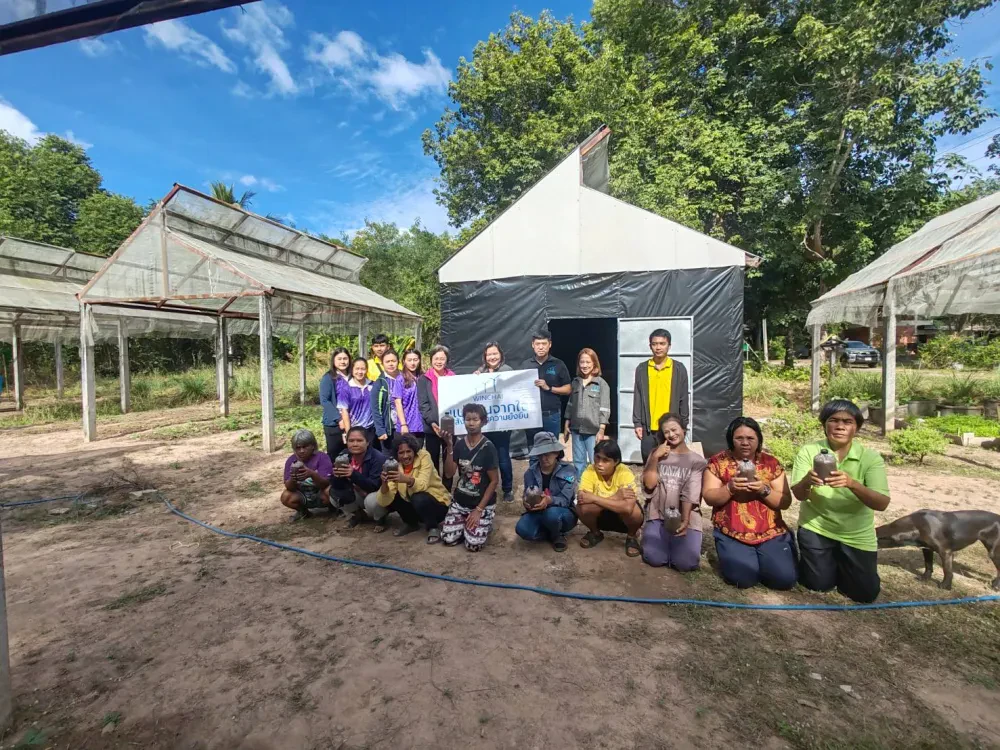
Human Rights and Labor Practices
Importance and Mission
Ensuring alignment with labor standards and legally mandated wage agreements, including the provision of living wages. The Group also respects the right to freedom of association and collective bargaining, and supports the protection of human rights both domestically and under labor regulations in countries where it operates. Given that most of the Group’s employment is local and the nature of its projects involves relatively high labor-related risks, the Group closely monitors practices associated with modern slavery. This helps prevent potential risks related to forced labor and human trafficking within the renewable energy sector and its supply chain, thereby reinforcing the Group’s commitment to ethical and transparent business conduct.
Building on this foundation, the Group aligns its practices with global frameworks, particularly the United Nations Guiding Principles on Business and Human Rights (UNGPs). While these principles are considered soft law, they have become increasingly influential as the basis for domestic regulations that businesses must understand and integrate into their operations. Additionally, many jurisdictions where the Group operates enforce binding legal obligations that further underscore the importance of compliance with human rights standards.
This legal and regulatory context is particularly relevant as human rights risks in renewable energy projects are becoming more pronounced. These risks are increasingly intertwined with climate-related concerns. Although private entities may not be legally bound by international climate agreements, governments are beginning to impose stricter accountability requirements on companies to reduce greenhouse gas emissions, making human rights and climate action mutually reinforcing priorities.
In particular, renewable energy development can significantly impact local communities. This is especially true in areas where land acquisition is required or where labor rights may be vulnerable. For instance, investments in wind or solar projects may affect the rights of indigenous peoples, triggering the need to comply with both national and international laws. Conducting comprehensive human rights due diligence (HRDD) not only mitigates these risks but also enables more effective stakeholder engagement, thereby contributing to long-term social license to operate.
Human rights considerations are also critical in the sourcing of raw materials used in renewable energy technologies. The production of batteries, for example, depends on minerals such as lithium, nickel, and zinc, which are often extracted in ways that may adversely affect labor rights and indigenous communities. In manufacturing processes, particularly for solar panels, workers may be exposed to hazardous substances such as cadmium, further highlighting the need for stringent protections. Given these concerns, companies in the renewable energy sector must pay close attention to the origin of materials, especially when sourcing from regions subject to trade restrictions or human rights controversies. Beyond monitoring suppliers, companies must also assess the human rights track record of associated organizations to ensure alignment with ethical standards.
Human rights due diligence must extend beyond the supply chain’s upstream stages. It should also encompass downstream activities, including the responsible disposal of renewable energy technologies at the end of their lifecycle. As projects evolve and bring in new partners, companies must remain vigilant about how those partnerships could introduce additional human rights risks into the business ecosystem.
To address these challenges holistically, the Group emphasizes fair labor practices through its recruitment policies and procedures. These promote equitable treatment for employees, contractors, and partners, and include monitoring of working conditions with a focus on occupational safety. The Group also encourages fair compensation as a means of improving quality of life. Importantly, a responsible supply chain is viewed as a core pillar of the Group’s sustainability strategy. In support of this, the Group has developed a Partner Code of Conduct that serves as a shared framework to guide all parties in upholding human rights and labor standards throughout the value chain.
SDGs in the Human Rights and Labor Practices
Goals and Performance Highlights
Goals
Performance Highlights 2024
Employees
- Working conditions
- Health and Safety
- Freedom of association
- Right to organize
- Right to collective bargaining
- Discrimination
- Human rights violations
- Use of illegal labor
- Personal data protection
Communities
- Standard of living
- Health and Safety
- Land Acquisition
- Resettlement
Suppliers/ Contractors
- Working conditions
- Health and safety
- Discrimination against business partners/contractors during procurement and when working on site
- Personal data protection
- Use of illegal labor
Customers/ Consumers
- Health and Safety
- Personal data protection
Management Approach
The Group regularly reviews its human rights policies and operational procedures, ensuring they remain aligned with legal requirements, regulations, and evolving social contexts. These updates are communicated organization-wide and to external stakeholders. The Group also revisits its human rights risk assessments to ensure all stakeholder groups are included, with a commitment to avoiding any activities that may constitute human rights violations or legal infractions.
The Group supports and adheres to the Universal Declaration of Human Rights (UDHR), the United Nations Global Compact (UNGC), and the core labor standards of the International Labour Organization (ILO).





